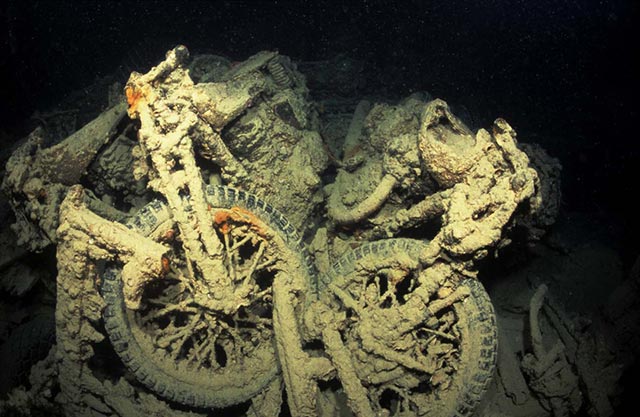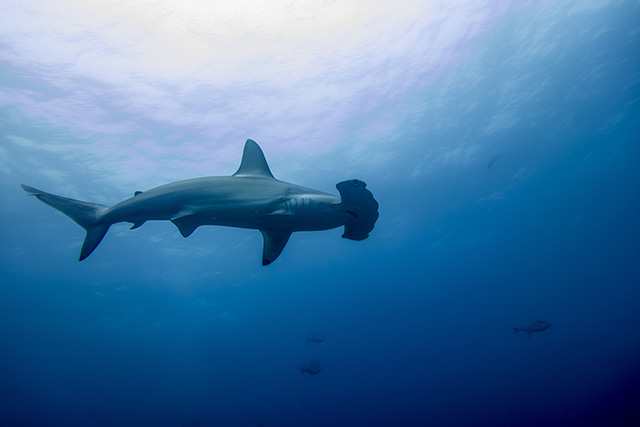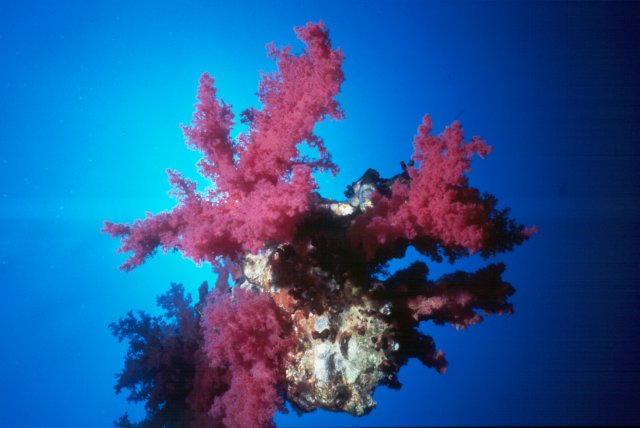Welcome to SCUBA News. I hope you find it useful. Any questions or comments to news@scubatravel.co.uk.
8 Fabulous Liveaboard Deals - Save up to 40%
More great liveaboard diving deals, specially selected for us by Divebooker.com, the liveaboard specialists. Including some specials for solo travellers.
- EcoPro Mariana, Best of Maldives. 13 - 24 October 2024 (11 nights) Price from $3960 $2772 per trip per person, SAVE 30%. For 16 divers, including two single cabins for solo travellers.

More Info or Book
- Ghani, Northern Red Sea, 20 - 27 July 2024 (7 nights), SAVE 20%, Price from Euro 1250 1000 per trip per person. Visiting Dahab, Tiran and the famous Thistlegorm wreck.

More Info or Book
- Phinsi, Thailand, 18 - 27 July 2024 (9 nights), Price from EUR 1211 969 per trip per person, SAVE 20% in October and November. Similan and Surin islands

More Info or Book
- Belize Aggressor IV: 31 Aug - 07 September 2024 (7 nights). Book now and save $800 per person

More Info or Book
- Tambora, Indonesia, 16-23 August SAVE 30%, Price from USD 3850 3465 per trip per person. Gems of Alor.

More Info or Book
- Carpe Diem, Maldives, August to September, SAVE 25%, Price from USD 2790 2093 per trip per person

More Info or Book
- Emperor Harmoni, Best of Raja Ampat, 5 - 14 September 2024 (9 nights), Price from EUR 4,455 3,564 per trip per person, SAVE Euro 891
More Info or Book
- Blue Horizon, Brothers, Daedalus and Elphinstone, Red Sea. Fabulous diving in the Red Sea with sealife from gorgeous corals to hammmerhead sharks from 07 -14 October 2024, SAVE 40%, Price from EUR 1495 1196 per trip per person

More Info or Book
Creature of the Month: the beautiful soft coral, Dendronephthya hemprichi
"Like rich rosettes of royal velvet, they decorate the rusting iron, transforming the unromantic metal stanchions into pillars that would grace a palace"
wrote Robert Gibbings on observing soft corals for the first time on his visit to Hurghada in 1938.

Soft coral. Tim Nichosoln
This beautiful soft coral is on the wreck of the Carnatic in the Red Sea.
The coral is Dendronephthya hemprichi. This species is a pioneer settler. It can clone small fragments of itself with root-like processes that quickly attach to artificial structures like wrecks. Especially vertical structures.

D. hemprichi on the Numidia wreck, The Brothers, Red Sea. Tim Nicholson
As well as cloning itself, this soft coral reproduces sexually year round. They don't have synchronised broadcast spawning episodes though, as many other corals do. They also reproduce at a younger age than other corals. Spawning occurs after sunset and continues until 2 am.
Feeding
The soft coral takes in sea water to expand its body before feeding. This builds up a positive pressure inside the coral that supports the branches and trunk.

D. hemprichi at Fury Shoals. Jill Studholme
Another difference between D. hemprichi and other corals, is that they don't depend on symbiotic algae: they are azooxanthellate (asymbiotic). Instead they feed almost exclusively on phytoplankton. Eight feathery tentacles surround the coral's mouth and whip food into it. They feed on very small plankton such as single-celled algae, rather than larger particles as had previously been thought.

D. hemprichi on Dungus reef. Tim Nicholson
Do they build coral reefs?
At first soft corals were not thought to be reef-building, although they do secrete limestone. In their case this is as internal crystals called sclerites or spicules.

D. hemprichi, with yellow spicules, at Fury Shoals. Jill Studholme
Research though has revealed that some parts of coral reefs are actually made from cemented sclerites of a soft coral.
Because soft corals do not have large skeletons, they grow faster than hard corals
Plant or Animal?
The soft coral is actually a colony of animals, each connected to its neighbour by living tissues. A single coral animal is a polyp - the attractive "flowery" projection.

Soft coral in Malapascua, Philippines. Toby Gibson/DepositPhotos
Where to see this beauty?
You find Dendronephthya hemprichi from around 10 to over 50 m, standing out from walls and wrecks in currents, in the tropical waters of the Red Sea and Indo-Pacific.
In May 2023 divers observed it for the first time in the Mediterranean. Because it can settle quickly on surfaces and reproduce rapidly by cloning, and as the sea is warming, it may soon be common in the Mediterranean as well. This is worrying because as an invasive species here, it may disrupt the native ecosystems. Animals from the highly biodiverse Red Sea are often more competitive than native Mediterranena species. It probably arrived in the Mediterranean through the Suez Canal, like so many other species.
Israeli scientists writing in the journal Biology in 2023 point out:
"Amidst the doomsday predictions of a collapsing ecosystem, bio-invasions in the Mediterranean Sea can also be observed through rose-colored glasses. As the Mediterranean Sea is a remnant of the Tethys Ocean, from a historical perspective, the changes observed can also be viewed as a return to the sea's tropical origins"

Soft corals in Red Sea. Garry Frazer
Phylum: Cnidaria > Class: Anthozoa > Subclass: Octocorallia > Order: Alcyonacea > Family: Nephtheidae > Genus: Dendronephthya > Species: Dendronephthya hemprichi
References and Further Reading
Soft coral is reef building, SCUBA News
Blue Angels and Whales, by Robert Gibbings 1938
K Fabricus, Y Benayahu, A Genin, Herbivory in Asymbiotic Soft Corals. Science, April 1995, Volume 268
M Dahan, Y Benayahu. Clonal propagation by azooxanthellate octocoral Dendronephthya hemprichi. Coral Reefs (1997) 16:5-12
U. Oren, Y. Benayahu, Transplantation of juvenile corals: a new approach for enhancing colonization of artificial reefs. Marine Biology, February 1997, Volume 127, Issue 3, pp 499-505
Nativ H et al. New Record of Dendronephthya sp. (Family: Nephtheidae) from Mediterranean Israel: Evidence for Tropicalization? Biology. 2023 Sep 8;12(9):1220.
SCUBA News is licensed under a Creative Commons Attribution 4.0 Unported License. This means we are happy for you to reuse our material for both commercial and non-commercial use as long as you: credit the name of the author, link back to the SCUBA Travel website and say if you have made any changes. Most photos though, are copyright the photographer. Please get in touch for details.
No comments:
Post a Comment